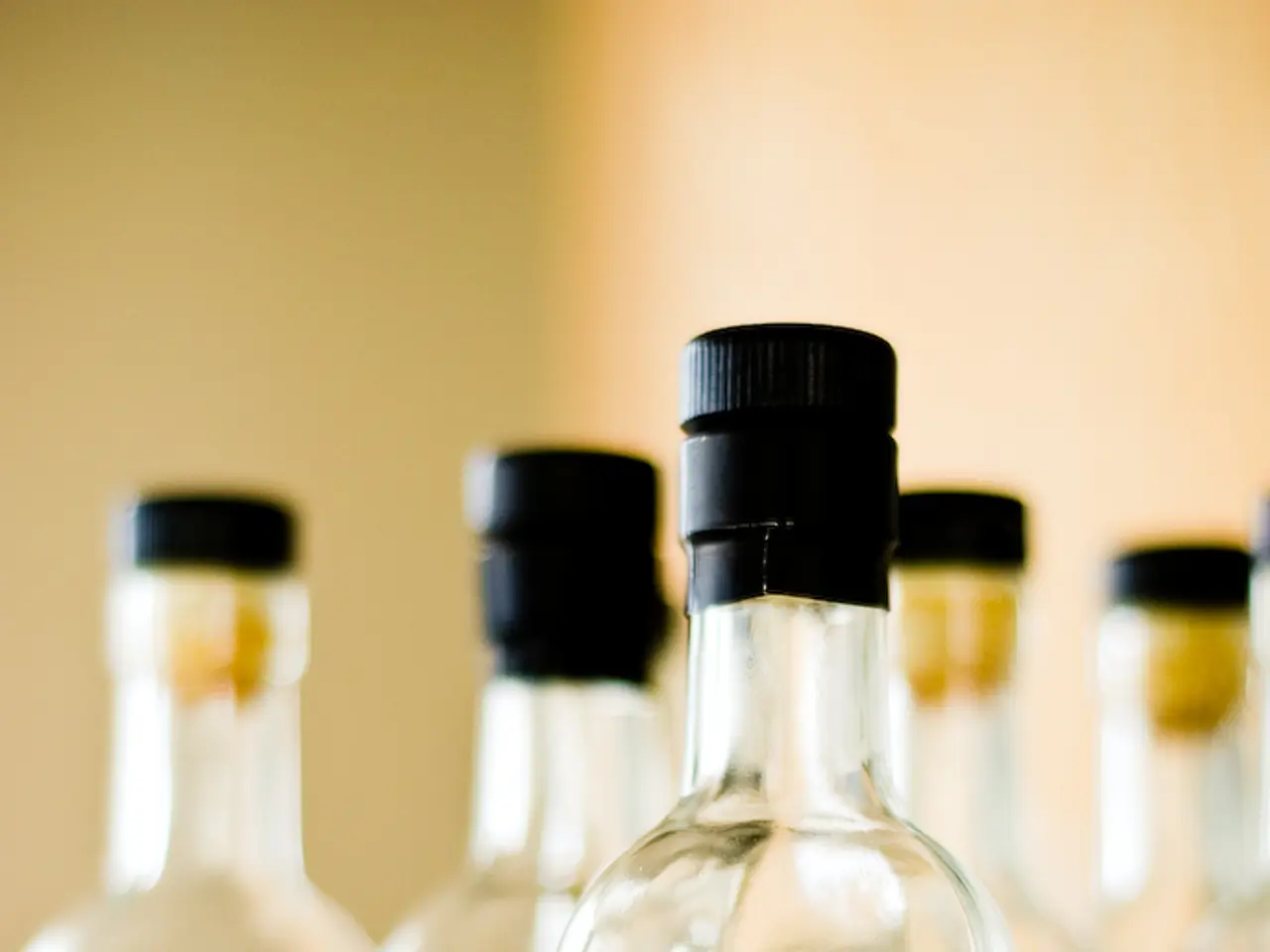Alcohol warning regulations in Ireland are postponed, marking a significant delay in implementation.
Ireland, a pioneer in alcohol regulation, has decided to delay the introduction of new health warnings on alcoholic drinks until 2028. Initially planned for May 2026, the decision to extend the timeline has been met with relief in Europe's wine trade, yet it has also sparked concerns from public health advocates.
The new warnings, set to include calorie content, grams of alcohol, and warnings on cancer, liver disease, and pregnancy risks, are aimed at promoting transparency and empowering consumers to make informed choices. However, economic considerations may have played a role in the Irish government's decision to delay the implementation.
The European Wine Industry (Comité Européen des Entreprises Vins - CEEV) has welcomed the delay, describing it as good news for producers, especially small and medium wineries, who face significant packaging and administrative costs. CEEV also raised concerns about the Irish regulations conflicting with EU single market rules and called for harmonised EU-wide approaches.
On the other hand, public health advocates and medical organisations have strongly condemned the delay. The Irish Medical Organisation (IMO) called it a "serious threat to public health," warning that postponement would lead to preventable cancer cases, liver disease, and harm to children, notably foetal alcohol spectrum disorder, with Ireland having one of the highest incidence rates globally. Alcohol Action Ireland criticized the delay as denying consumers their right to information and attributed it to industry lobbying.
The World Health Organization (WHO) has backed clear and prominent health warning labels on alcohol, including a specific cancer warning. Dr Hans Henri P. Kluge, WHO regional director for Europe, stated that such warnings are a cornerstone of the right to health. The WHO believes that these warnings empower individuals to make informed choices about the harm alcoholic products can cause.
The debate about health warnings on drinks, including wine, is likely to continue. The European wine trade body, CEEV, has previously argued that the Irish government's proposed policy contravened European Union single market rules and was disproportionate and unjustified. Ignacio Sánchez Recarte, CEEV secretary general, added that the delay presents a chance to rethink how to ensure consumers are well-informed while safeguarding the legal and economic coherence of the European market.
As the implementation of Ireland's new health warnings remains on hold, the focus shifts to the potential benefits and drawbacks of such regulations, striking a delicate balance between public health priorities and economic and trade interests.
- The delay in Ireland's new health warnings on alcoholic drinks until 2028 has brought relief to Europe's wine trade.
- The European Wine Industry has described the delay as good news, particularly for small and medium wineries.
- CEEV also raised concerns about the Irish regulations conflicting with EU single market rules.
- Public health advocates and medical organisations have strongly condemned the delay.
- The Irish Medical Organisation called it a "serious threat to public health."
- Alcohol Action Ireland criticized the delay as denying consumers their right to information.
- The World Health Organization has backed clear and prominent health warning labels on alcohol.
- Dr Hans Henri P. Kluge, WHO regional director for Europe, stated that such warnings are a cornerstone of the right to health.
- The WHO believes that these warnings empower individuals to make informed choices about the harm alcoholic products can cause.
- The debate about health warnings on drinks, including wine, is likely to continue.
- CEEV has previously argued that the Irish government's proposed policy contravened European Union single market rules.
- Ignacio Sánchez Recarte, CEEV secretary general, added that the delay presents a chance to rethink how to ensure consumers are well-informed.
- The focus shifts to the potential benefits and drawbacks of such regulations.
- The delay in health warnings also sparks concerns about cancer, liver disease, and pregnancy risks.
- The Irish government's decision may have been influenced by economic considerations.
- The new warnings are aimed at promoting transparency and empowering consumers.
- The debate on health warnings reflects a delicate balance between public health priorities and economic interests.
- The delay in health warnings could lead to preventable cancer cases and liver disease.
- Ireland has one of the highest incidence rates globally for foetal alcohol spectrum disorder.
- The delay, according to Alcohol Action Ireland, is a result of industry lobbying.
- The WHO supports health warning labels as a cornerstone of the right to health and informed choices.
- Wine travel may be influenced by the clarity of health information on alcoholic drinks.
- Science continues to shed light on the impact of chronic diseases, such as cancer, on human health.
- Good sleep, as part of workplace-wellness, is crucial for productivity and overall health.
- addressing medical-conditions like chronic-diseases, cancer, respiratory-conditions, and digestive-health is a priority in health-and-wellness.
- Eye-health and hearing are crucial aspects of health-and-wellness, especially with the rapid advancement in technology.
- Mental-health and men's-health are often overlooked but are essential components of health-and-wellness.
- Skin-care, along with therapies-and-treatments, plays a significant role in maintaining skin-health and managing skin-conditions.
- A balanced diet rich in nutrition and regular fitness-and-exercise contribute to overall health, aging gracefully, and managing weight-management.




